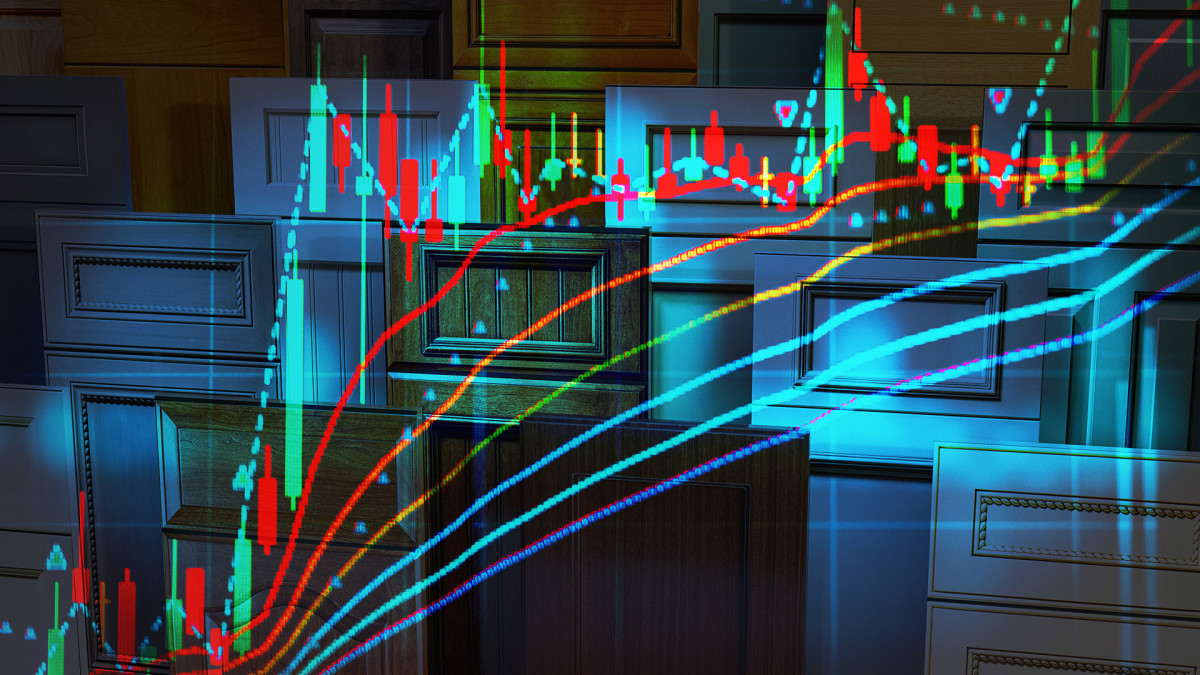
Stocks have been on quite a roll over the past 12 months.
The S&P 500 has soared 27% amid hope for Federal Reserve interest-rate cuts and euphoria over artificial intelligence. That increase far exceeds the average annual gain of 9% since 1990, according to Moneychimp.
Some experts say it’s overdone, given the cloudy interest-rate picture.
Interest-rate futures indicate a 58% chance that the Fed will begin trimming rates in June. But some economists, such as Torsten Slok of Apollo Global Management, don’t think the central bank will cut rates at all this year.
Some experts also think that artificial intelligence is overhyped. They point out that it’s not yet clear exactly what financial impact AI will have on individual companies.

Valuations Historically High
Moreover, valuations are stretched historically. According to FactSet, the forward price-earnings ratio, or P/E, for the S&P 500 registered 20.5 as of April 5.
That tops the five-year average of 19.1 and the 10-year average of 17.7. And those were two periods when stock-price gains exceeded historical norms.
"There is nothing screaming from the rooftops that at 20 times you have to sell," Mark Hackett, chief of investment research at Nationwide Mutual Insurance, told Reuters. "It’s just you’d obviously rather buy at 15 times."
Related: $1 billion fund manager lauds several big tech stocks, including Nvidia
With optimism for technology stocks overdone, “I have a feeling we’re at the beginning of 2000,” when tech stocks crashed, Vincent Mortier, chief investment officer at Amundi, Europe’s biggest money manager, told Bloomberg.
Trouble in the commercial real estate market means “there’s also a little bit of 2007,” when the financial system began to wobble, he said.
TheStreet Pro's Doug Kass, a hedge fund manager whose career stretches back to the 1970s, recently listed several areas of danger for the market.
- Geopolitical tension (the Mideast war),
- Inflation fears,
- The likelihood of higher interest rates for longer,
- Interest rates have been climbing for several months,
- Rising commodity prices, particularly gold and silver,
- Market breadth has been deteriorating,
- Energy's market leadership generally reflects a maturing bull market,
- Investor sentiment is extremely bullish.
However, some experts remain hopeful, pointing out that analysts forecast a 3.2% year-over-year earnings increase for the S&P 500 in the first quarter, the third straight quarter of profit growth.
Major earnings releases start coming out on April 12.
Wells Fargo View of Stocks
Christopher Harvey, an equity analyst at Wells Fargo, is one of the bulls. He just pushed his year-end target for the S&P 500 to 5,535, up from 4,625 previously. The new level is the highest among Wall Street forecasters, he said.
It also represents a 7% gain from Tuesday’s level of 5,182. The SPDR® S&P 500® ETF Trust (SPY) , an exchange-traded fund tracking the S&P 500, is up 9.4%.
Fund manager buys and sells:
- $7 billion fund manager touts 3 blue-chip stocks
- Cathie Wood buys $35 million of beaten-down tech stock
- Single Best Trade: Fund manager at $7 billion firm unveils favorite pick
Harvey wrote in a note to institutional investors that the market isn’t so worried about P/E ratios. “The bull market, AI's secular growth story, and index concentration have shifted investors' attention away from traditional valuation measures and toward longer-term growth and discounting metrics.”
A spike in volatility is probably coming in the first half of the year, but a “melt-up appears increasingly likely” in the second half, he said.
A melt-up refers to frantic buying in the market, often sparked by fears of missing out rather than fundamental analysis.
Harvey said a melt-up could be “partly driven by political outcomes that support greater merger and acquisition activity and partly by an anticipated multi-year Fed easing cycle that supports risk-taking.”
Related: Fund manager of $100 million long/short mutual fund explains pair trade strategy
The political outcomes would presumably include a victory by Donald Trump, as the Biden administration has taken a restrictive stance on mergers.
Harvey isn’t blind to possible roadblocks for the equity market.
“We believe systemic risk is on the rise, as various incentives (e.g., monetary policy) spur risk and leverage-seeking,” he said. “But in our view, systemic risk is not close to a top.”
As for stock sectors, Harvey recommends communications for offense, healthcare, and/or utilities for defense. “This combination allows investors to participate on the way up while providing attractive downside protection,” he said.
Related: Veteran fund manager picks favorite stocks for 2024







